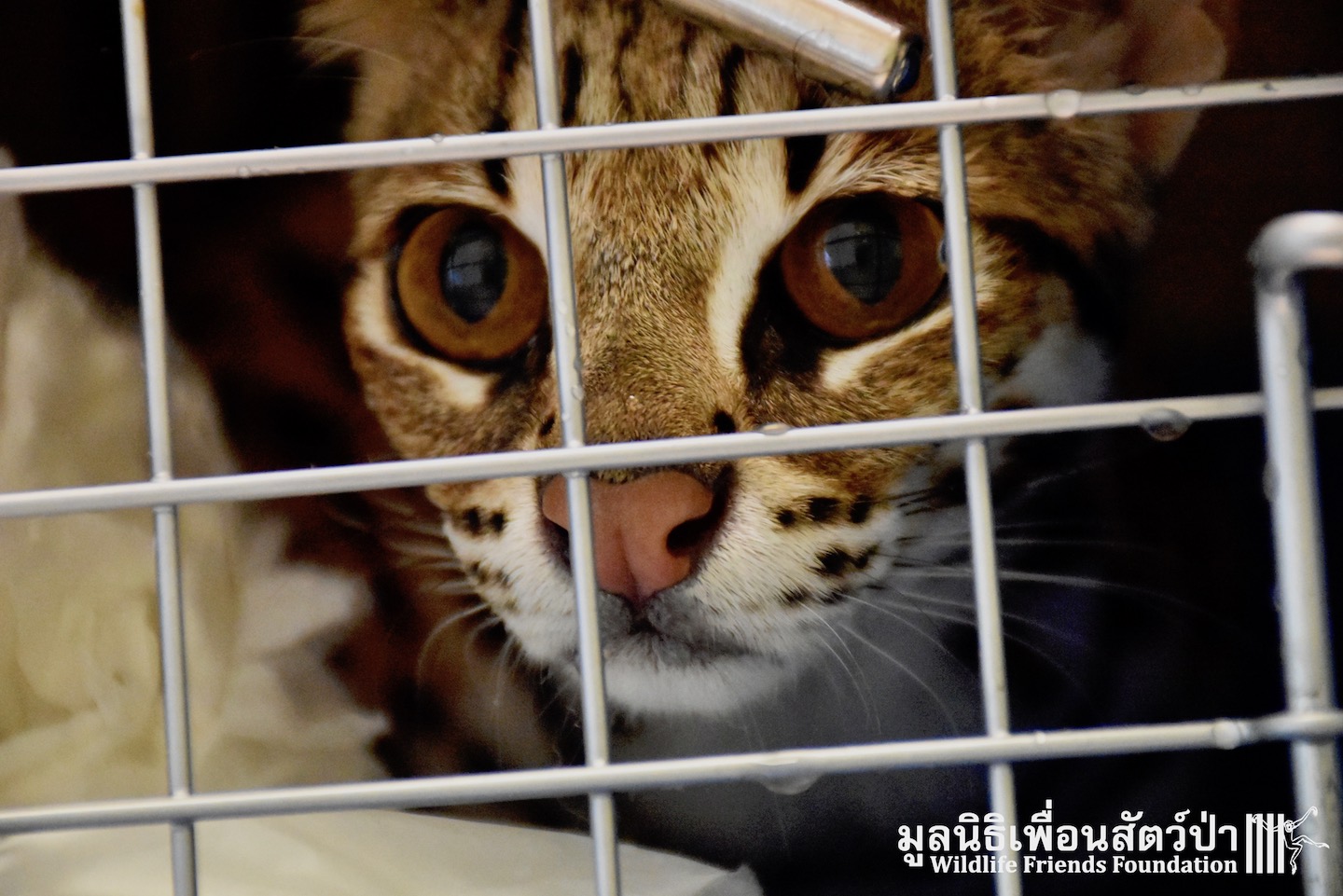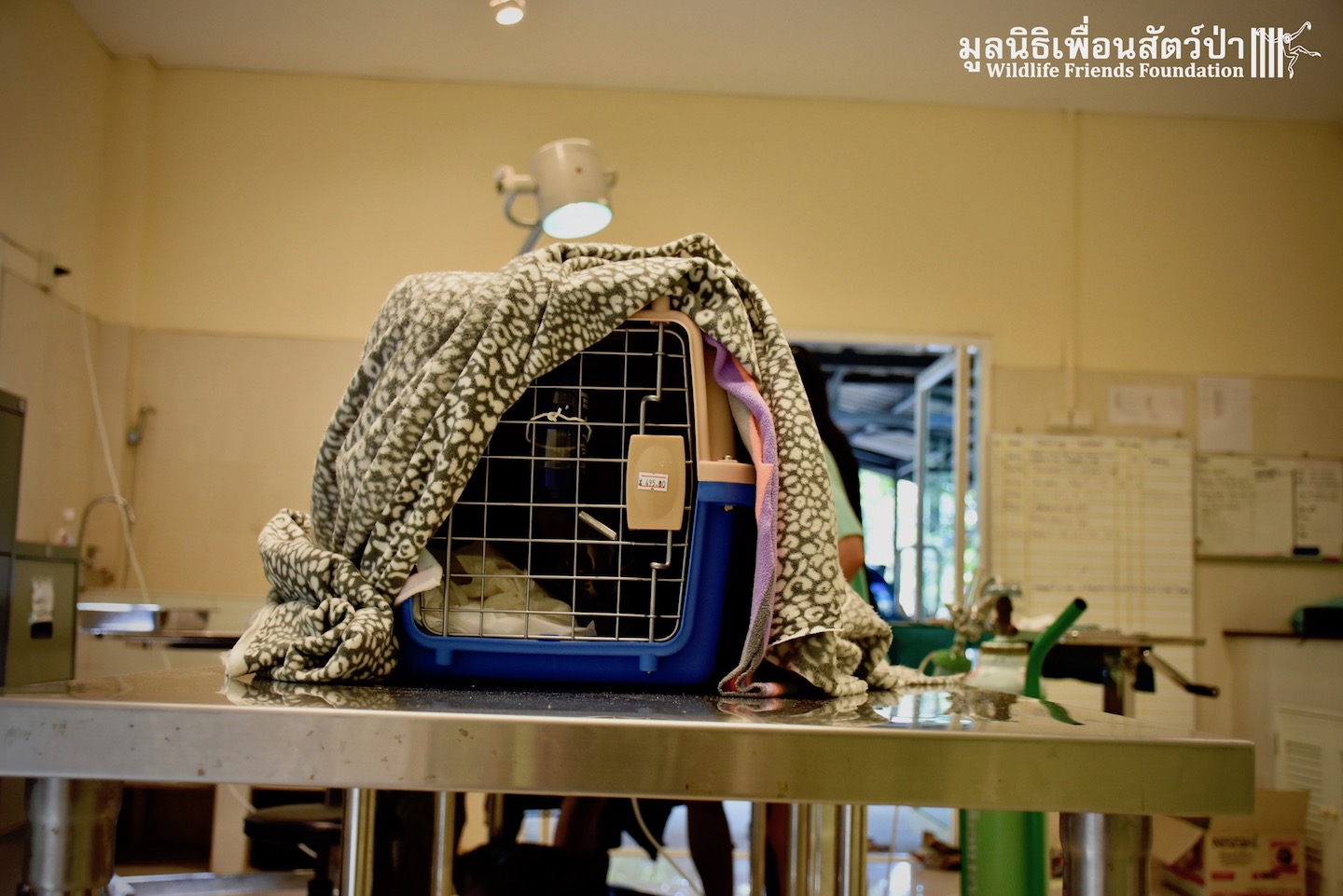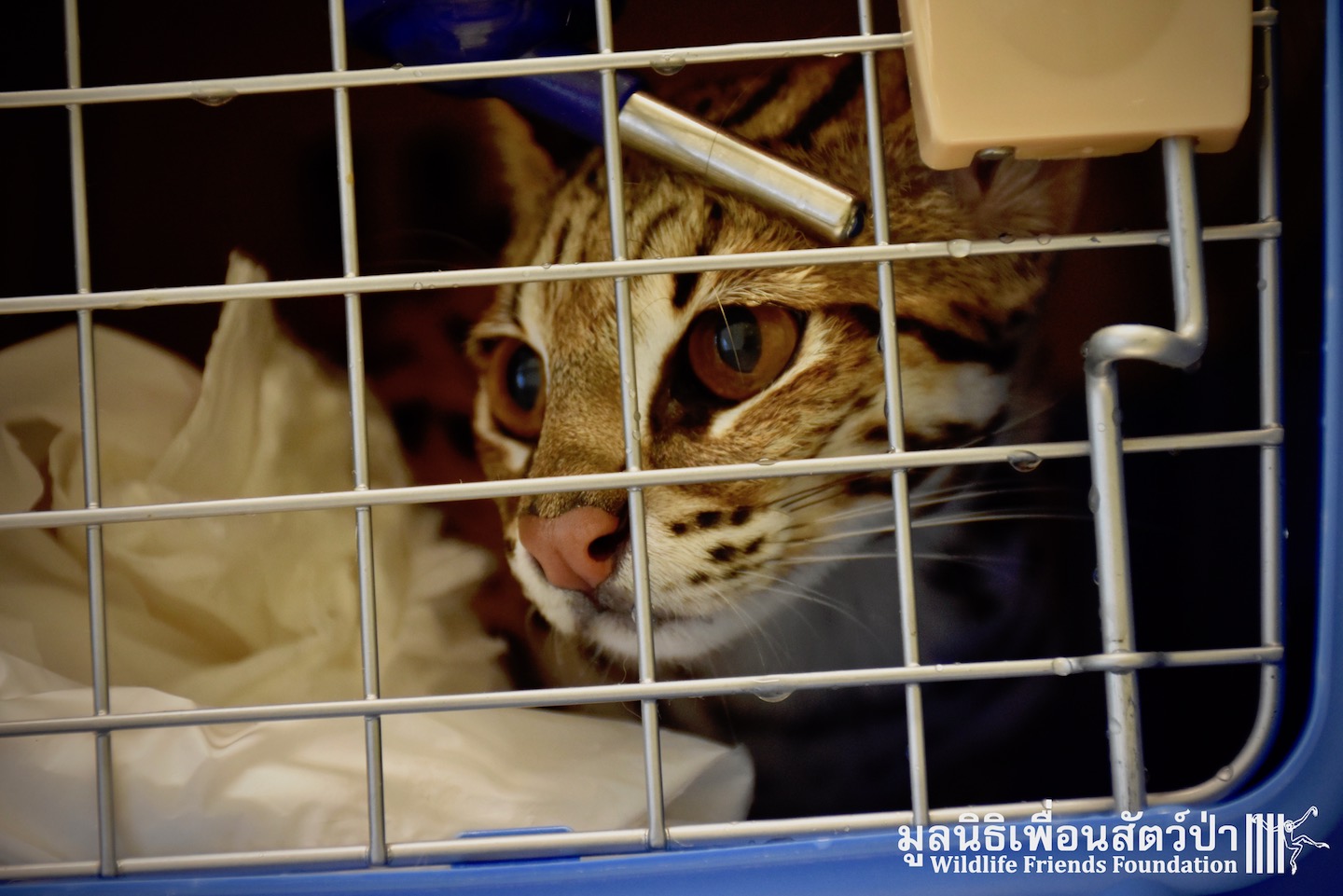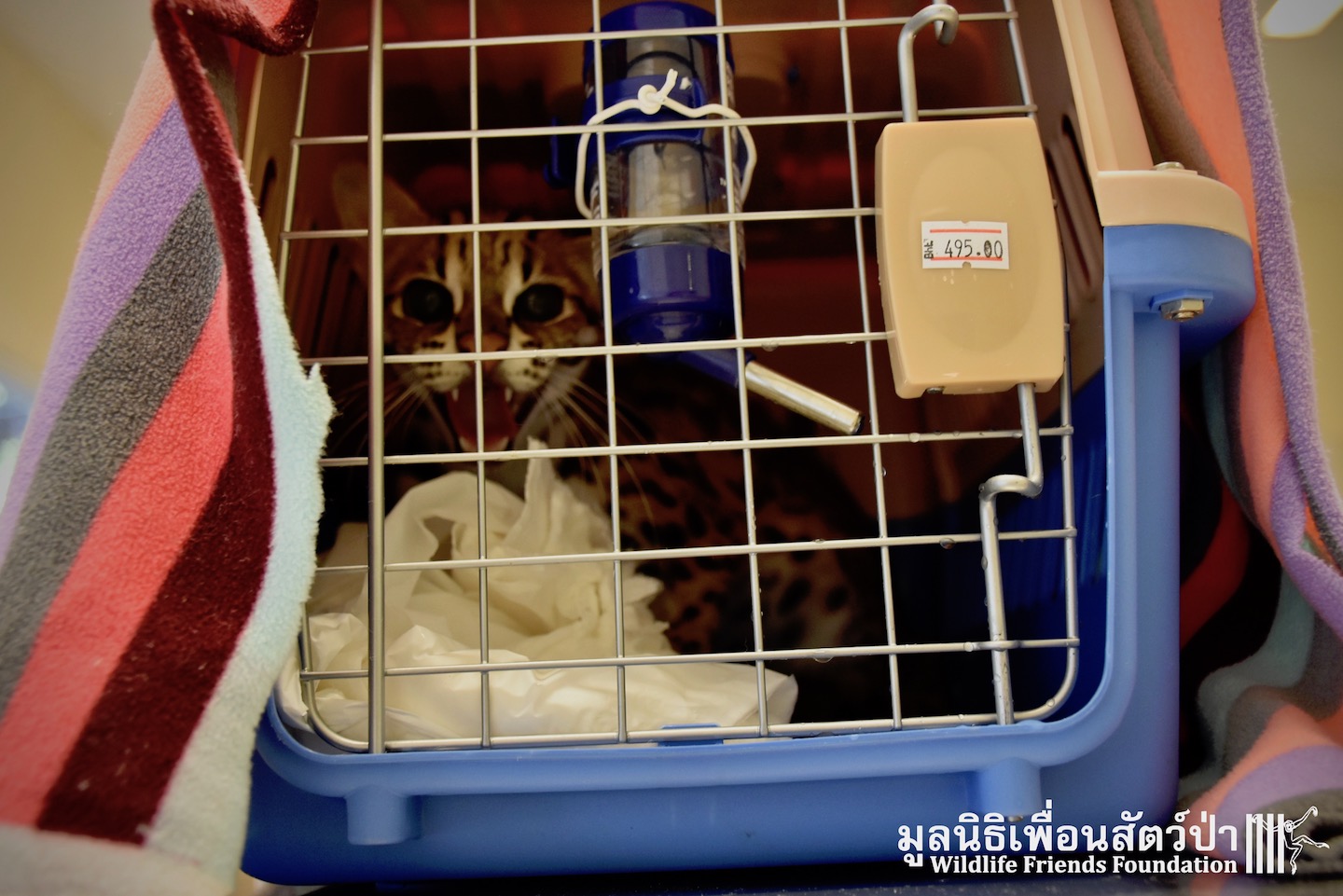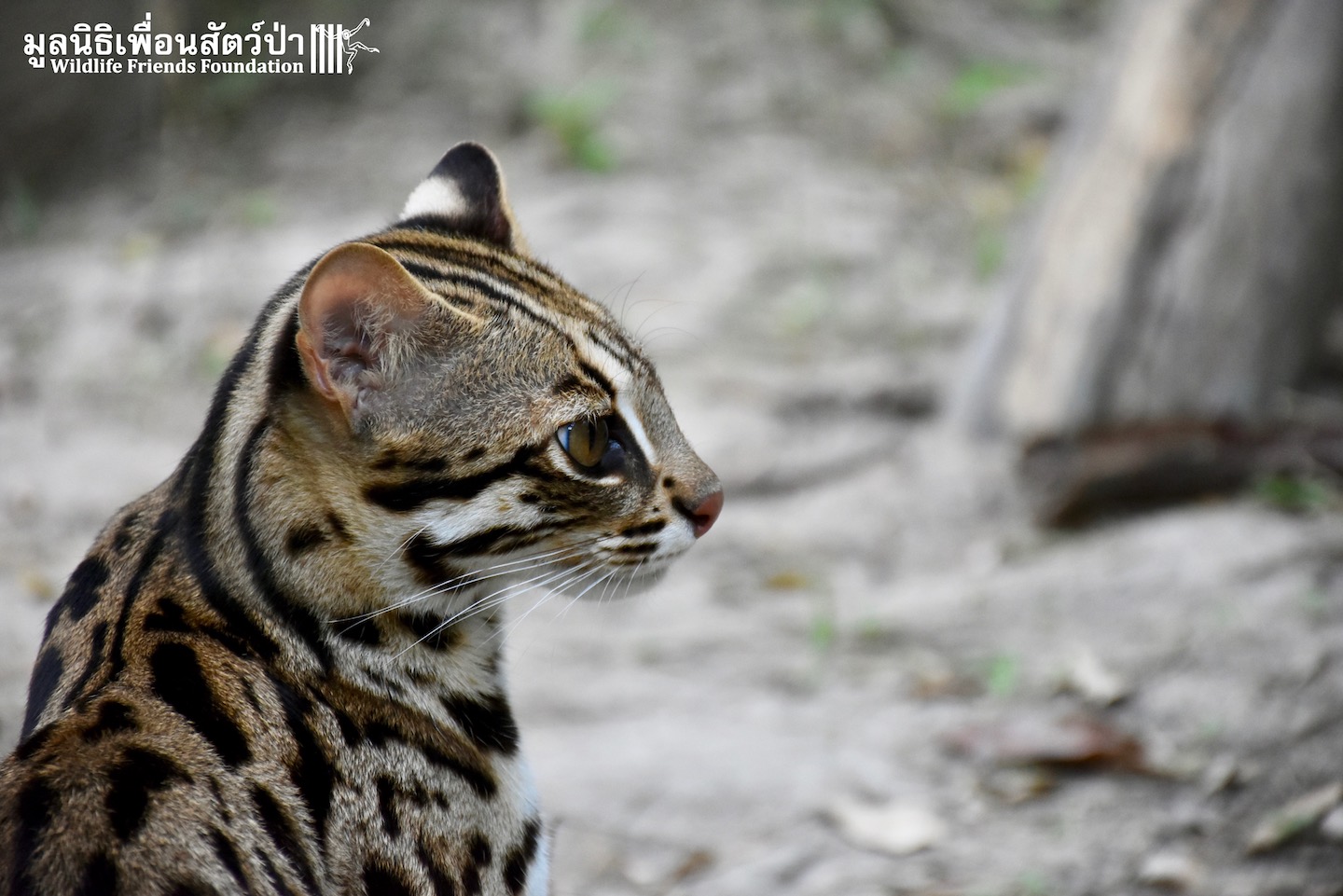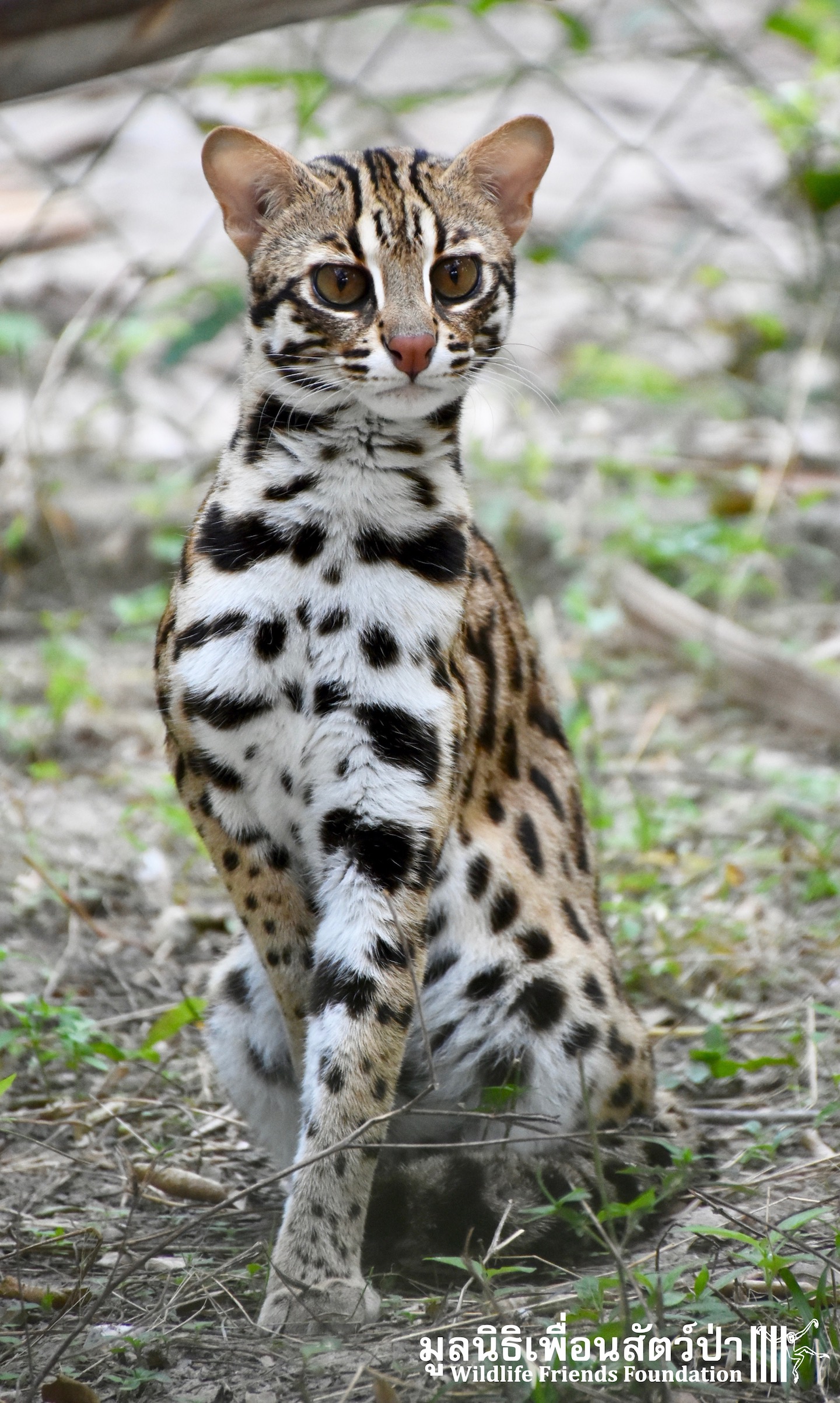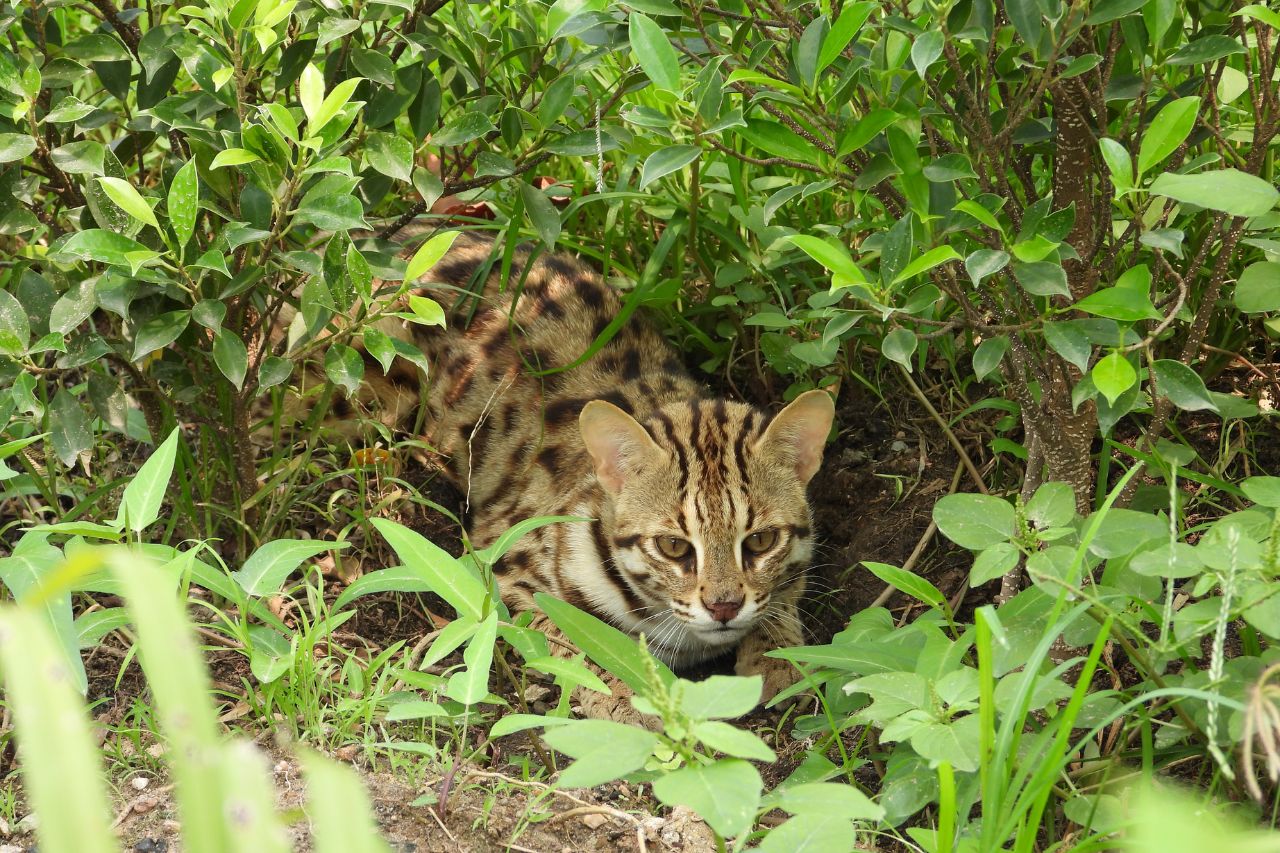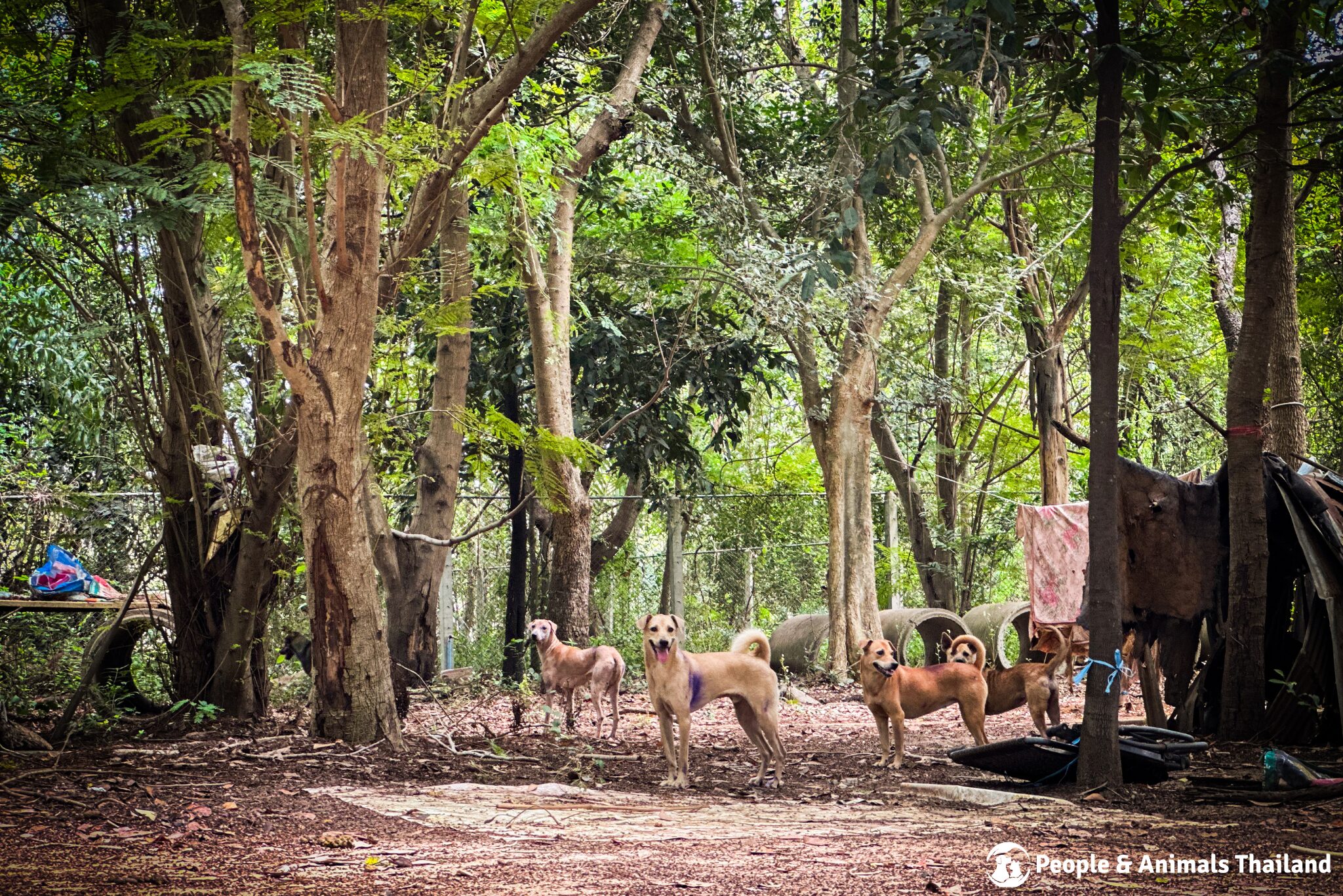Thanks to the generous support of Fondation Brigitte Bardot, we’ve completed four new enclosures, providing rescued small and medium wild cats with new spacious and enriched homes to thrive in.
Unwanted Pet ‘Tigger’ the Leopard Cat Arrives
Meet ‘Tigger’, the 6-month old female leopard cat (Prionailurus bengalensis).
She had been kept as a pet in a high rise apartment in Bangkok city centre after being purchased from the internet. As a very young kitten, she was taken away from her mother so she could be sold into the illegal pet trade, it is likely that she was illegally poached from the wild.
Her owner treated her like a domestic cat kitten, she even lived with two domestic cats in the same apartment. As she grew larger, she became more aggressive and less receptive to human affection and became increasingly intolerant to her domestic cousins. At this stage, the owners finally realised that keeping a dangerous wild animal as a pet was not a good idea.
Having done some research, they found that WFFT Wildlife Rescue Centre would be able to provide her with a safe home, con-specific friends and possible rehabilitation and release back to the wild.
The IUCN Red List of Threatened Species lists this species as Least Concern (LC). Leopard Cat skins are commercially traded internationally for the fur trade, primarily coats. Skins are also used as decorations in some parts of its range. Leopard Cats are occasionally kept as pets, sometimes taken from the wild and sometimes from captive breeding and they have been interbred with domestic cats, particularly in the West, to make the popular Bengal breed. Their bones are used in some traditional Asian medicines. Leopard Cat populations in Bangladesh, India and Thailand are listed on CITES Appendix I, and all other populations are listed on Appendix II. Although commercial trade is now much reduced this species continues to be hunted throughout most of its range for fur, for food and as pets. They are also widely viewed as poultry pests and killed in retribution.
Tigger arrived yesterday and is still a little confused about her new surroundings. She is eating well and we hope, within time, she will be able to live with her own species once again. In the future, she may be deemed a suitable release candidate and she may get a second chance at a wild life. Keep Wildlife Wild and Not as Pets!!!

